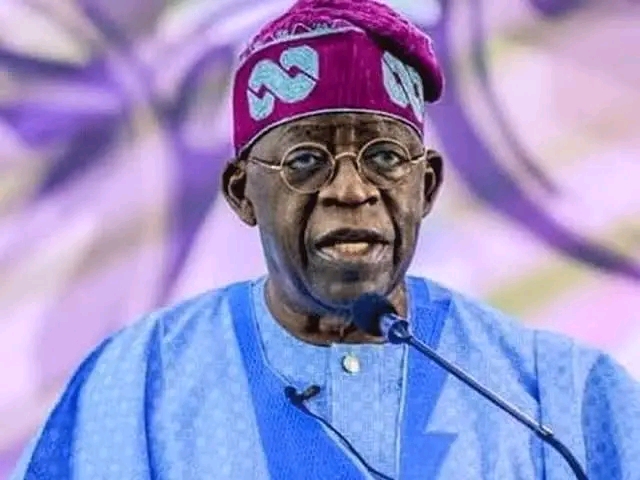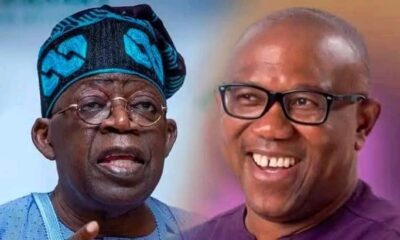Opinion
When sycophants ruin a nation, by O. A Ayinde, PhD

In the life of every nation, it is tempting—perhaps even convenient—to focus blame solely on those in formal positions of power. Yet history suggests a more layered truth: the slow unraveling of societies often begins not at the center, but around it—among those who whisper influence without bearing its weight, who possess access without accountability. These are the polished minds, the lettered elites, the eloquent voices who, rather than challenge the system, cushion it with compliments and curated applause.
Leadership, at its core, is not only a matter of policy—it is shaped by perception. And perception is, more often than not, sculpted by those behind the scenes. When professionals, intellectuals, and technocrats choose flattery over frankness, they do not simply endorse decisions—they shape destinies. What is often praised as loyalty may, in truth, be fear in fine clothing. What is framed as diplomacy may, in some cases, be silence negotiated for convenience.
As the Yoruba wisely put it, “Bí a bá rí òtítọ́, kà sọ́ ọ́; òtítọ́ kì í bàjé”—if we see the truth, let us speak it; truth does not decay. And yet, in our civic space today, truth is increasingly treated as an unwelcome guest. We are not witnessing a crisis of knowledge, but a crisis of courage—where understanding abounds, yet the willingness to speak with integrity wanes.
It is deeply unsettling to watch a nation in distress while many of its brightest minds remain silent or choose abstraction over advocacy. These are not the uninformed—they are professionals, consultants, and policy shapers who frequent the halls of influence. Yet, in the moments that matter most, they master the art of polite evasion: never too sharp to offend, never too firm to confront. As the Igbo proverb reminds us, “He who holds the knife and the yam must not pretend to be a victim.”
What we observe daily is not merely weak governance—it is a broader culture of institutional ambiguity. Hardship is explained away with polished data, and national pain is often reduced to policy terminology. But are these truly misunderstandings, or carefully managed narratives? Where are the moral compasses? Where are the dissenting voices grounded in patriotism? Have they all become muted in the comfort of proximity to power?
We must remember: no position is permanent. The reins of authority are always temporary. As the Hausa say, “Sarakuna na da iyaka, amma gaskiya tana dawwama”—kings have limits, but truth endures. One day, when influence has faded and relevance is past, the question will remain: with all your knowledge and access, did you challenge or conform? Did you offer light, or did you help shade the truth?
A more pressing tragedy looms: the gradual disillusionment of the citizenry. The people no longer demand transformation—they simply hope for survival. The despair is not only economic, but existential. It is the kind of weariness that comes when those who should speak boldly have chosen instead to whisper, or worse, to say nothing. Silence, in moments of moral urgency, is not neutrality—it is abdication.
This is a form of poverty not captured by any economic index—the poverty of principle. We are nurturing graduates with technical proficiency but shallow conviction. We are raising professionals who pursue influence but flee from accountability. Then we ask ourselves: why does our society remain fragile? As the Yoruba caution, “Ẹni tí kò ní i tìkára rẹ̀, kò le kó’lé”—he who has no backbone cannot build a house.
Still, time watches. The masquerade may dance with grandeur, but it must retire. The rains may fall with force, but they never fall forever. History does not rush, but it remembers. And when power passes—as it always does—the enduring question will be: what did you do with your moment? Did you heal wounds or merely dress them with words?
Indeed, in moments of deep national difficulty, we must ask: who spoke truth to power? Who reminded leadership of the people’s pulse? For when the leader is encased in applause, it is not the tailor who should be questioned, but the trusted companions who insisted the robe was flawless.
Let us be clear: a nation cannot grow inside an echo chamber. And those who build it—through gentle omissions and well-timed silences—must someday reckon with its consequences.
So, we watch—not with bitterness, but with clarity. We remember—not out of vengeance, but for the sake of vigilance. For the arc of history, though long, bends toward justice. And when the reckoning comes—as it surely will—may our names be found among those who chose fidelity over familiarity, principle over proximity, and truth over temporary praise.
There is an irony too uncomfortable to ignore: the very individuals who populate advisory panels, policy boards, and televised debates are often the first to recast national emergencies as theoretical puzzles. Pain is analyzed, not alleviated. Injustice is rebranded as inefficiency. They speak not with urgency, but with detachment—as though hunger were a hypothesis and hardship a footnote.
This cultivated blindness—intentional or convenient—has not only distorted governance, it has diluted its soul. And that is why a nation so full of promise finds itself trapped in cycles of loss. Not because we lack intellect, but because we have turned integrity into a luxury. As the elders say, “Ọ̀rọ̀ tí a kò sọ, là á fi ń pa ilé”—it is the unspoken truth that burns down the house. The house smolders, yet many with water in hand choose instead to fan the flames with commentary and crafted statements.
The danger of such sycophancy is not merely in what it hides, but in what it breeds. Leadership begins to lose its hearing. Surrounded by filtered reports and selective applause, it becomes allergic to criticism and blind to reality. Like a captain sailing into a storm with a crew too afraid to speak, the consequences become inevitable. At this point, silence is no longer passive—it becomes a partner to decline.
Visionary governance cannot thrive in isolation—it needs honest feedback, moral clarity, and unfiltered truth. When advisors prioritize comfort over candour, governance morphs into performance. Policy becomes performance art, and decisions drift further from the daily realities of the people. Power survives—but meaning erodes.
We often hear that our challenge is leadership. But is that the full picture? Leadership, after all, emerges from the soil of society. If those with knowledge refuse to speak truth, and those with vision refuse to challenge power, then the throne will always be filled by those who govern with mirrors instead of maps. “Ìmúlòlùfé olóṣèlú lèyí”—we are witnessing a politics of mutual deception.
Even more troubling is that the consequences of this culture are not evenly shared. Those who advise without conscience do not bear the brunt of policy failure. It is the teacher whose salary cannot stretch, the pensioner waiting endlessly, the young graduate without opportunity, who lives the cost. While elites trade influence in quiet rooms, ordinary citizens trade hope for endurance.
And so, we arrive at a pivotal moment in our national story. A moment that invites us to reflect on this enduring truth: nations do not crumble for lack of intelligence. They fall when integrity is treated as optional. Rome had thinkers. Babylon had philosophers. But when honesty became negotiable, they collapsed—majestic on the outside, hollow at the core.
Nigeria, too, must choose. Will we be a republic of courageous voices or a gathering of compliant minds? Will we protect the truth, or merely perform around it? For when truth is exiled from the chambers of power, even the gods begin to grieve.
Thank you all
-

 National News1 day ago
National News1 day agoINEC’s exclusion of Julius Abure praised as victory for democratic accountability
-

 Politics1 day ago
Politics1 day ago2027: We’re ready to unseat APC – PDP
-

 Politics1 day ago
Politics1 day agoPDP Chairman, Damagun’s spokesperson resigns
-

 Politics1 day ago
Politics1 day agoObi slams Tinubu over St Lucia trip
-

 Opinion1 day ago
Opinion1 day agoOsun APC guber ticket: Aspirants emerge, battle lines drawn
-

 Crime and Law1 day ago
Crime and Law1 day agoBreaking: kidnapped Benue Links passengers regain freedom
-

 National News14 hours ago
National News14 hours agoPresidency fires back at Peter Obi, defends Tinubu’s trip to Saint Lucia
-

 Education13 hours ago
Education13 hours agoWe have no record of FUTA graduate — JAMB insists






















